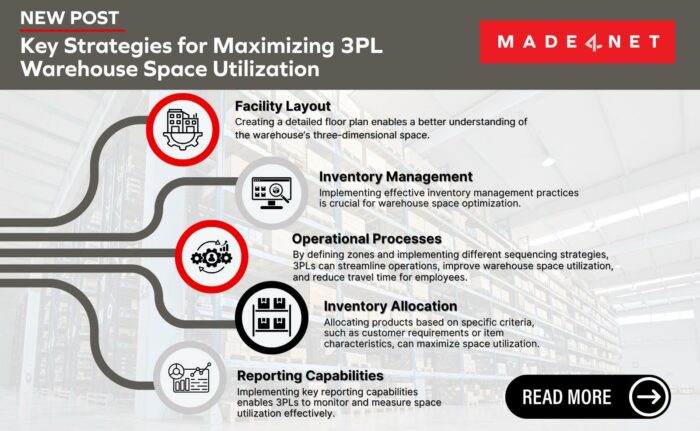
In today’s fast-paced and highly competitive business landscape, meeting customer expectations has become paramount. As consumers increasingly demand convenience and personalization, companies need to embrace innovative distribution strategies to stay ahead. In this blog post, we will explore the concept of omnichannel fulfillment, its benefits, and how a Warehouse Management System (WMS) can help you create seamless customer experiences across various channels.
Understanding Omnichannel Fulfillment
Omnichannel fulfillment refers to a strategy that integrates multiple sales channels, such as brick-and-mortar stores, e-commerce websites, mobile apps, and social media platforms, to provide customers with a unified and consistent shopping experience. Unlike traditional multichannel approaches, which may operate in silos, omnichannel fulfillment ensures that each channel is connected and synchronized.
Benefits of Omnichannel Fulfillment
From happier customers to more revenue, the benefits of an omni-channel strategy are real. Some top benefits include:
- Enhanced Customer Experience: Omnichannel fulfillment allows customers to switch between channels seamlessly. They can browse products online, place orders through mobile apps, pick up items in-store, or have them delivered to their doorstep. This flexibility empowers customers and enhances their overall experience.
- Increased Sales and Revenue: By integrating multiple channels, businesses can tap into a larger customer base and reach new markets. With the convenience of purchasing from anywhere and the ability to choose the most suitable fulfillment option, customers are more likely to make repeat purchases, leading to increased sales and revenue.
- Inventory Optimization: Omnichannel fulfillment enables businesses to consolidate their inventory across various channels. This centralized approach provides better visibility into stock levels, reduces the risk of overstocking or stockouts, and enables efficient order fulfillment.
- Data-Driven Insights: With omnichannel strategies, businesses can gather valuable customer data from multiple touchpoints. Analyzing this data allows companies to understand customer behavior, preferences, and trends, enabling them to personalize marketing campaigns and product offerings.
WMS and Omnichannel Fulfillment
Behind the scenes, a crucial component that ensures the success of omnichannel operations is a robust WMS. A WMS acts as the backbone of order processing and fulfillment in an omnichannel environment. It consolidates orders from different channels, automatically routes them to the appropriate fulfillment centers or stores, and optimizes the picking and packing process. With a WMS, businesses can efficiently manage multiple fulfillment options, such as ship-to-home, ship-from-store, in-store pickup, or cross-docking.
Specifically, a WMS orchestrates the movement of inventory, optimizes and drives picking and packing operations, and provides real-time updates on any fulfilment related event, including but not limited to order status. This enables businesses to meet customer expectations for fast and accurate order fulfillment regardless of the sales channel. By integrating with various systems, such as point-of-sale (POS) systems and e-commerce platforms, a WMS also provides accurate and up-to-date information on inventory levels. This ensures that customers can make informed purchasing decisions based on real-time stock availability. Furthermore, a WMS enables businesses to track inventory movements, including transfers between locations, returns, and stock adjustments. This level of visibility allows for better inventory control, reduces the risk of errors, and enables proactive inventory replenishment.
Conclusion
Omnichannel fulfillment is no longer a luxury; it has become a necessity for businesses aiming to thrive in the digital age. By embracing this strategy, companies can deliver a consistent and personalized shopping experience to customers, thereby fostering brand loyalty and driving revenue growth. A WMS is a crucial component in the success of omnichannel fulfillment. It streamlines inventory management, facilitates efficient order processing and fulfillment, and provides accurate inventory visibility. By implementing a robust, configurable and adaptable WMS, businesses can effectively manage inventory across multiple channels, deliver seamless order fulfillment experiences, and meet customer expectations for speed, accuracy, and convenience. See how our Omnichannel fulfillment solutions can help your business streamline its operations.


